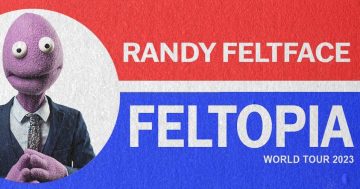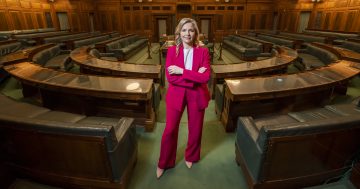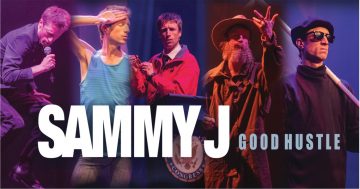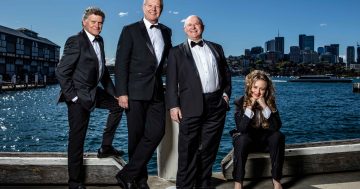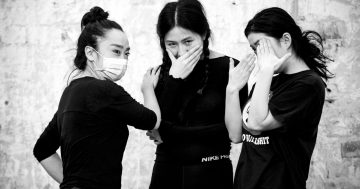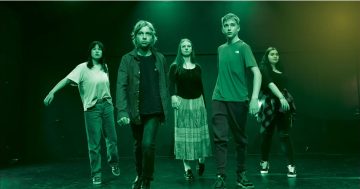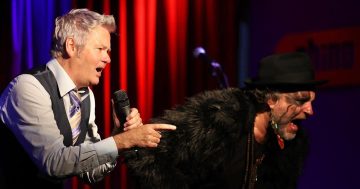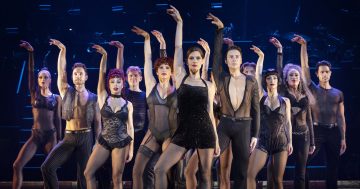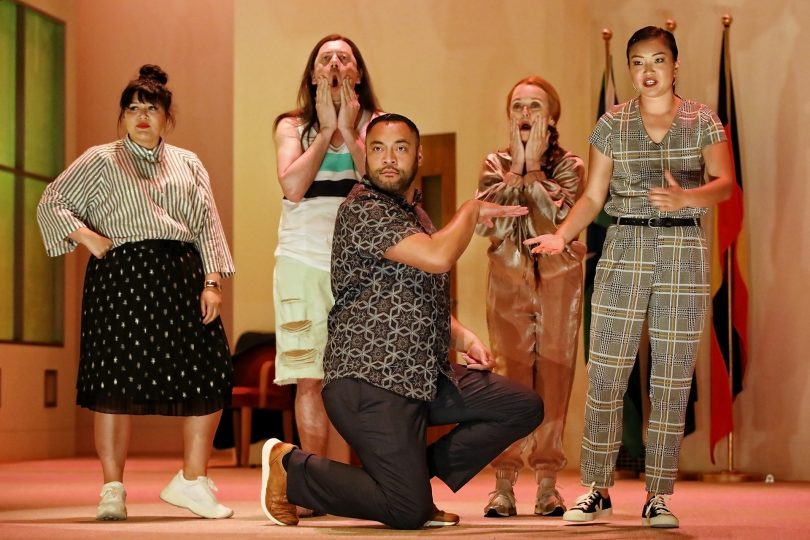
Nakkiah Lui with fellow How to Rule the World cast members Hamish Michael, Anthony Taufa, Vanessa Downing, and Michelle Lim Davidson. Photo: Prudence Upton.
Part of playwright Nakkiah Lui’s motivation for writing How to Rule the World (Canberra Theatre from 3 April) stems from appearing on the ABC’s Q&A amidst a panel of argumentative politicians.
“I’d sit there on the panel watching these professional question answerers go at each other hammer and tongs, then in the green room afterwards they’d be completely friendly,” she says. “I’d think to myself either it’s really bipartisan or – and this is a much scarier thought – maybe they really just don’t care that much about what they’re saying? Is politics just a game to them?”
On a much more down to earth level (literally) she came face to face with the effects of paralysing and destructive government policy when her elderly grandmother struggled to get repairs for a termite-riddled floor in her Housing Commission flat. It wasn’t repaired, and Lui’s grandmother fell through the floor and died a few months later. “That’s the effect politics can have on people’s lives,” she says.
Lui is hot property: her work is being produced more than Shakespeare on Australian stages this year. When How to Rule the World comes to the Canberra Theatre, we’ll be seeing some sharp, modern political satire from the indigenous playwright.
Basically, Lui says “an Aboriginal an Islander and an Asian walk into a bar, and leave with plans to rule the world. They’re educated and successful, they work in Canberra and in politics but they’ve reached a glass ceiling with their careers and they’re confused by the world around them politically and racially.
“So they decide they’ll find a stooge and run him in the next half-Senate election with the intention of preventing some racist legislation from going through parliament.”
Lui loves comedy (she stars, produces and directs in the ABC TV series Black Comedy) and she loves politics, but most of all she loves turning ideas on their heads and shaking them upside down. In How to Rule the World, she takes the old Australian idea of a fair go, and the more recent values of multiculturalism and asks how they work for everyone.
Class also gets a nod: Lui says of herself that she is a middle-class Aboriginal person, but “my life doesn’t necessarily mean things have changed for everyone else. Some people have privileges of education, work, but many don’t, so why is that still the case?
“It’s that classic old trope about how you can change something. without turning into it. If power corrupts, what would it mean to these three people who traditionally don’t have it?”
And it’s not as if these questions of privilege and access are too far away: her mother grew up by a river in regional NSW, being actively discouraged from completing school. Her grandmother lived in fear of losing her children to the Stolen Generations.
Lui says “I have this life because they survived, still believing in this country. Look at migrants, women, the queer community – we’re all fighting for this country to be a better place. People in my extended family are not as lucky as me, though, and equality shouldn’t be dependent on luck. It should be a right.”
“There are a lot of things I love about Australia, including that I can write plays that critique our system, and that’s a privilege I don’t take for granted.”
Lui sees herself firmly in the bigger tradition of black theatre, which has been a powerful voice for change in the country. “Black theatre helped to define Australian theatre in terms of who we are and our community in relation to colonisation.
“Black theatre was active in the 1969 referendum, in the civil rights movements. Something like Basically Black (the 1973 Aboriginal comedy television series) was light years ahead in terms of satire. I also love Micallef, the Wharf Review, so with How to Rule the World I wanted a political satire that only I could write, but that also continued to create space for others in that comedy canon.”
Because in the end, Lui says, whether we laugh, cry or rage about the world around us, “Writing helps us to figure things out.”












